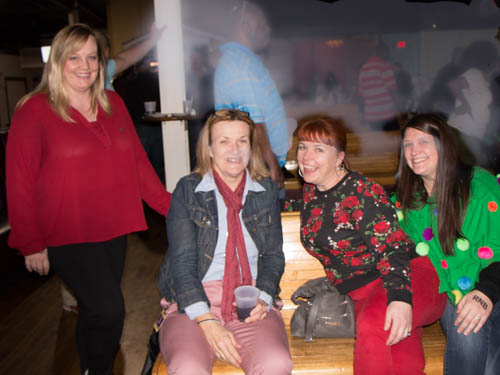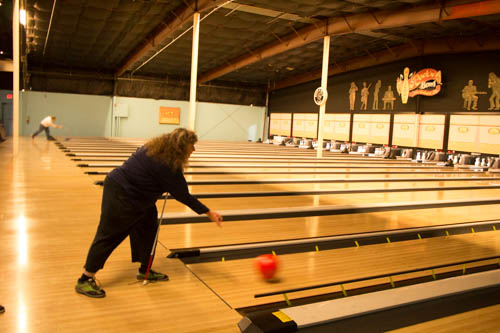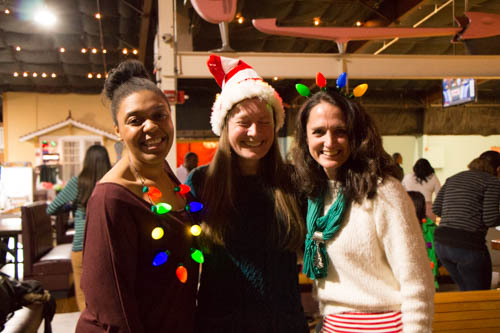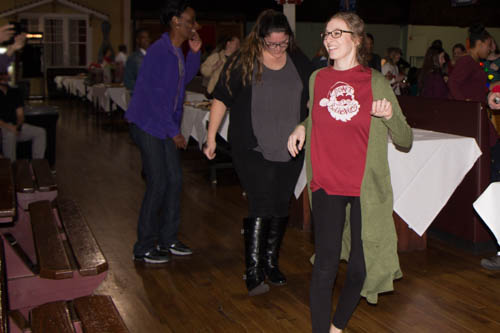The National Center on Leadership for the Employment and Economic Advancement of People with Disabilities (LEAD Center) has published an article in its December 2017 issue about how the Federal Deposit Insurance Corporation (FDIC) is promoting the financial inclusion of underserved populations through its Alliances for Economic Inclusion (AEIs). The FDIC has released four series of modules free of charge for different age groups under the name Money Smart, and has provided a Supplement for Instructors/Trainers: Scenarios for Financial Inclusion that will help expand understanding of the modules’ topics.
Read the article here.
The Money Smart modules can be found here: For Young Adults, For Adults, For Older Adults, For Small Business
On December 14, Lisa Staples, an HDC LEND trainee who works with HDC Nutrition Ambassador Lauren Griffiths to apply Cooking Matters lessons at HDC Early Head Start center McMillian’s First Steps, was featured in a post in the Albert Schweitzer Fellowship’s Beyond Boulders Blog, “Making nutrition fun again in New Orleans.” Staples implements the lessons learned in Cooking Matters courses as part of a program implemented at McMillian’s that is entitled Little Bitty Learning (LBL). The program thrives on student volunteers recruited through the Interprofessional Student Alliance (IPSA) as well as partnerships with Second Harvest and the Tulane University School of Public and Tropical Health Dietetic Internship. The program has not only succeeded in its main goal of encouraging (grand)parents to cook healthy meals for their (grand)children, but it also has had many fortunate side effects, including engaging the children in healthy eating, piquing the curiosity of the staff at McMillian’s, and strengthening family bonds.
On November 28, Sue Killam talked with Laura Nata of Families Helping Families Jefferson about supported employment in a Facebook video entitled You’re Hired.
The Rehabilitation Services Administration (RSA) is pleased to publish Frequently Asked Questions: Integrated Location Criteria of the Definition of “Competitive Integrated Employment.” This Frequently Asked Questions (FAQ) document addresses the criteria for an integrated employment location within the definition of “competitive integrated employment” in section 7(5)(B) of the Rehabilitation Act of 1973 (Rehabilitation Act), as amended by title IV of the Workforce Innovation and Opportunity Act (WIOA), and its implementing VR program regulations in 34 CFR §361.5(c)(9)(ii) (see 81 FR 55629 (August 19, 2016)). The information in these FAQs provides guidance and technical assistance to VR agencies and community rehabilitation programs so that they may assist individuals with disabilities to achieve high-quality employment.
The Workforce Innovation and Opportunity Act (WIOA) presents an extraordinary opportunity for the public workforce system to transform and improve the quality of life for job seekers and workers through an integrated, job-driven system that links diverse talent to our nation’s businesses.
The WIOA Quick Start Action Planner (QSAP) is an interactive, self-paced assessment tool designed to help leaders at all levels of the public workforce system plan for this transformation and prepare for implementation of WIOA. The QSAP will help you identify areas of strength and focused areas for improvement in your workforce system and connect you to targeted resources that can help you to prepare and plan effectively. OPEN QSAP
The December issue of the AUCD Nutrition is for Everyone (NIFE) newsletter is now available. Updates from the Louisiana (LA) project include the successful completion of three inclusive, adapted Cooking Matters courses. Additionally, LA NIFE begins a new partnership with Special Olympics Louisiana to develop a pilot nutrition and physical activity program for athletes and their families in Jefferson Parish.
U.S. Senators Maria Cantwell (D-WA) and Rob Portman (R-OH) have introduced the Ensuring Medicaid Provides Opportunities for Widespread Equity, Resources, and Care Act – or EMPOWER Care Act – to help Medicaid beneficiaries receive long-term services and support in their community or home and help save taxpayer dollars in the process. The bill would renew and expand the Money Follows the Person (MFP) Demonstration Program, which promotes community-based care and services and is as a sterling example of an initiative that improves patient outcomes while saving money for state and federal taxpayers.
A good time was had by all the afternoon of Wednesday, December 13. HDC hosted its annual End-of-Year Party at Mid City Lanes Rock ‘N’ Bowl. The opportunity enabled HDC employee Rose Angelocci to show that even clinically blind people can bowl. Blind bowling is in fact very common and competitive; see this article.
Happy Holidays from everybody at HDC!
In collaboration with Louisiana APSE, HDC provides 40 Hour Core training. This training meets LRS and OCDD vendor training requirements and incorporates APSE’s CORE Supported Employment Competencies. The class includes three full days of classroom instruction plus fieldwork assignments. The fee for this class is $350. One day classes valid for 5 Hour Continuing Education are also available. Please email lstazi@lsuhsc.edu for more information.
- Shreveport, January 9 – 11, 2018, at Goodwill Industries of North Louisiana, 800 W. 70th Street
- Baton Rouge, January 16 – 18, 2018, at UpLIFTD, 1979 Beaumont Avenue
–>> Click here for more information to register <<–
School is where Augmentative and Alternative Communication (AAC) learners spend a large portion of their days. There needs to be multiple opportunities for students to USE and LEARN AAC each day. More than that though, we strive for full participation and interaction for students who use AAC. This session will explore strategies to help build AAC participation for both students and educators.

 myLSUHSC
myLSUHSC




